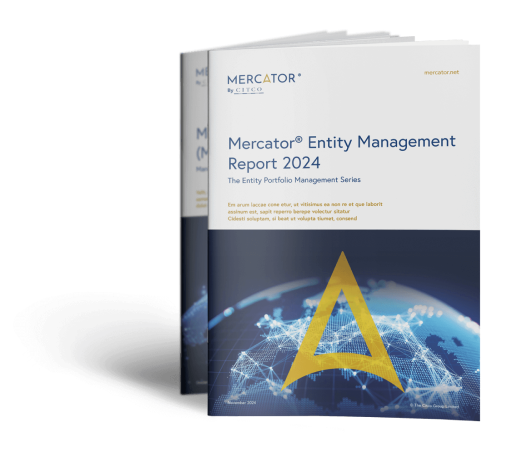The information contained in this document is marketing material and for informational purposes only. The information contained in this document is presented without any warranty or representation as to its accuracy or completeness and all implied representations or warranties of any kind are hereby disclaimed. Recipients of this document, whether clients or otherwise, should not act or refrain from acting on the basis of any information included in this document without seeking appropriate professional advice. The provision of the information contained in this document does not establish any express or implied duty or obligation between Citco and any recipient and neither Citco nor any of its shareholders, members, directors, principals or personnel shall be responsible or liable for results arising from the use or reliance of the information contained in this document including, without limitation, any loss (whether direct, indirect, in contract, tort or otherwise) arising from any decision made or action taken by any party in reliance upon the information contained in this document. © The Citco Group Limited, December 2024.
Taking up secondary directorships in Singapore – Key challenges and considerations
Singapore’s status as a global nexus for business and innovation readily attracts a host of foreign professionals to reside and work in the country.
All foreigners who intend to work in Singapore must have a valid pass before they start work. One of the most common work visas is the ‘Employment Pass’ (EP) with the process to apply and gain an EP being relatively straightforward.
But what happens when foreign individual with an EP is looking to take on a second company directorship outside of their primary place of employment? The answer – they will need to be prepared to face a complex and meticulous legal process.
Here we summarize the challenges and considerations for EP holders looking to successfully secure additional directorships in Singapore.
Key compliance requirements
EP holders are typically bound to work only for their specified employer. The undertaking of additional directorship roles – whether within or outside the business group – require compliance with the Companies Act, which treats these roles as formal employment.
Before any directorship appointment can proceed, a crucial first step is to secure a Letter of Consent (LOC) from the Ministry of Manpower (MOM).
Regulatory challenges and solutions
The process to secure a LOC is complex and often overlooked due to its specialized nature, falling outside the remit of typical HR and legal functions.
Notably, the Accounting and Corporate Regulatory Authority of Singapore does not verify LOC acquisition from the MOM during a director’s appointment lodgement, which adds a layer of responsibility on the EP holder and the appointing company.
Documentation and Timeline
Required documentation includes:
- An appointment letter for the EP holder indicating the secondary directorship.
- An organizational chart detailing the relationship between the primary and secondary employers.
The processing timeline for a LOC can typically take up to five weeks, and the outcome is communicated via email.
Eligibility and Criteria for Approval
The MOM generally approves LOCs for secondary directorships in entities that have a corporate shareholding connection with the EP holder’s primary employer, in recognition of the strategic importance of such roles. Even indirect relationships, like those involving holding companies or subsidiaries, may qualify.
In sectors where specific regulatory bodies govern professional activities, such as the Monetary Authority of Singapore for fund managers, additional endorsements may be required.
Renewal and Compliance Considerations
Upon the expiration or cancellation of an EP, the corresponding LOC also becomes invalid, necessitating a new application with each renewal of the EP. It is essential for the EP holder to resign and then be reappointed as a director following the approval of a new LOC.
The Do’s and Don’ts in Managing Secondary Directorship Applications
- Do initiate the LOC application well before the planned appointment.
- Do delegate the application process to professionals to ensure full compliance and efficiency.
- Don’t overlook the importance of keeping record of the EP expiry and other administrative details post-approval.
- Don’t underestimate the complexities involved in maintaining legal and regulatory compliance.
Conclusion
The secondary directorship application process in Singapore is complex and requires expert handling to navigate successfully.
With a global perspective and regional expertise, Mercator® by Citco is ideally positioned to assist foreign professionals in securing their secondary directorship roles, whilst ensuring full compliance and efficiency.
Chuah Teong Kang
Legal Officer, Mercator by Citco, Citco Singapore Pte. Ltd.

